International Heritage Centre blog
‘…behind the barbed wires’: internment on the Isle of Man
‘…behind the barbed wires’: internment on the Isle of Man
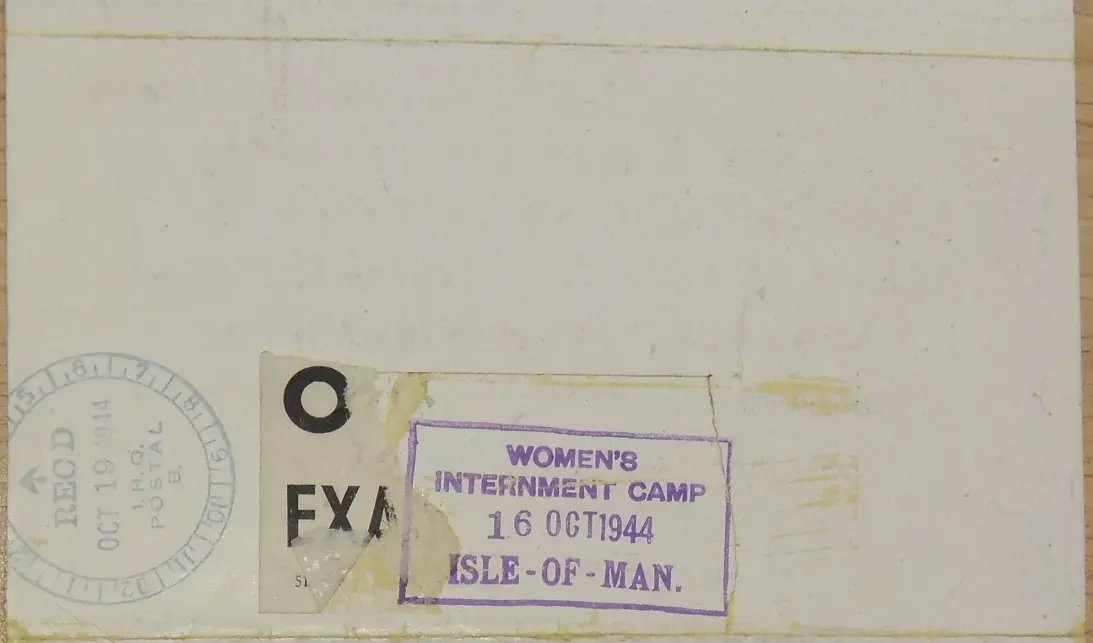
Amongst the papers of the Europe Zonal Department are some recently catalogued letters that shed light on the internment of a Salvationist family on the Isle of Man during the Second World War. Retired officers Lieutenant-Colonel Walter and Esther 'Ettie' Busse were interned, along with their daughter Captain Catherine Busse, in June 1940. Without any warning, Walter and Esther were taken from their home in Ilford, having been designated as ‘Enemy Aliens’. Esther was interned in Holloway prison and Walter in Bow Street prison for five weeks prior to their transfer to the Isle of Man. Their daughter Catherine, who had been serving in Glasgow, was taken to a Glasgow prison to await transfer. Upon arrival on the Isle of Man, Walter was separated from Esther and Catherine and placed in the Men’s camp, in spite of there being a family camp for married couples. They would spend the first eighteen months of their five year internment apart. The surviving correspondence between those interned and the Overseas Department of the Salvation Army reveals the difficulties the family faced and the struggle of the Salvation Army to assist them.
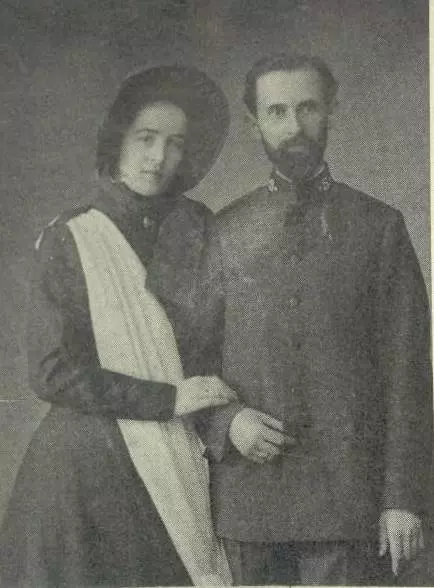
Walter and Esther had retired from active officership in 1934 and were living in Ilford at the time of their arrest. The couple had met when Esther, then Lieutenant Ettie Ashwell, had been appointed to serve in Berlin in 1902 – her first appointment following her commissioning as an Officer. Then Staff-Captain Walter Busse was the editor of the German War Cry and the couple married in 1907. They served for two more years in Germany before being appointed to Switzerland. Later returning, much of their service was in Germany before they retired to England.
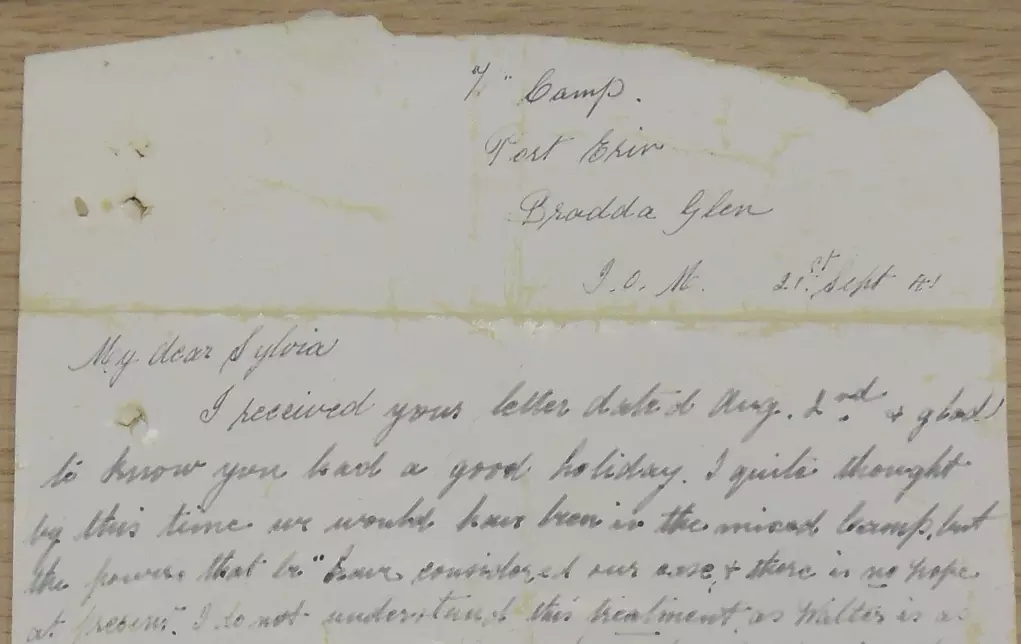
Whilst the majority of the correspondence is between Walter and individuals at the Salvation Army’s International Headquarters, an early letter dated 21 September 1941 from 'Ettie' to her sister Sylvia reveals the strain of the situation she is in. She laments the treatment of Walter, in being kept in a separate camp and writes that he ‘has had dizzy attacks and now he is almost 64 years’. Esther and their daughter Catherine [‘Katie’] are in Y camp at the time of this letter. Walter has been in several camps, most recently P camp but Esther explains that the families’ case had been considered ‘and there is no hope at present’ for a reconciliation.
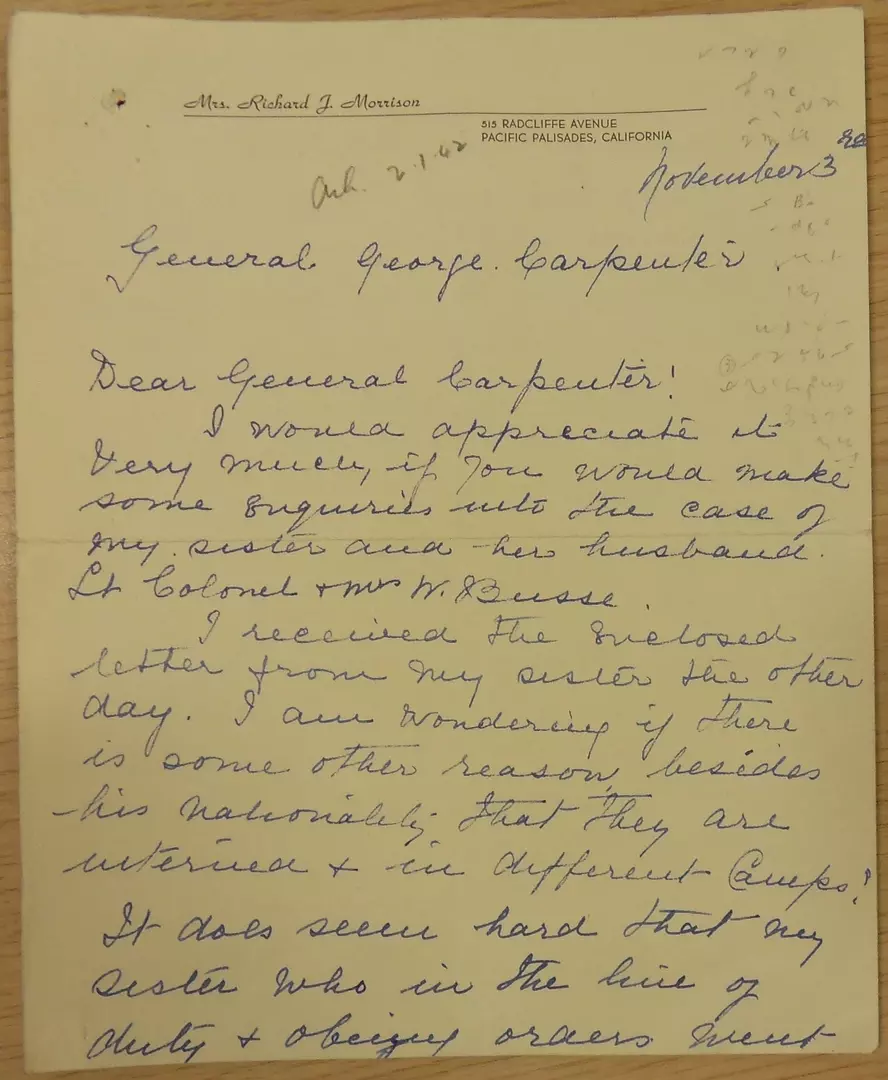
A few months later, a letter dated 3 November 1941 from Esther’s sister Sylvia is written to the General of the Salvation Army. Sylvia asks whether there is a reason besides nationality that Walter and Esther are interred and in separate camps. She points out Esther was born in England and went to Germany in the ‘line of duty’ over 36 years ago and married Walter. Sylvia asks for a confidential report on the matter and assurances that the couple are not forgotten by their leaders. A response dated 2 January 1942, assures Sylvia [Mrs. Morrison] that the question of the internment is constantly under review and the Salvation Army have sought information from the Home Secretary on more than one occasion.
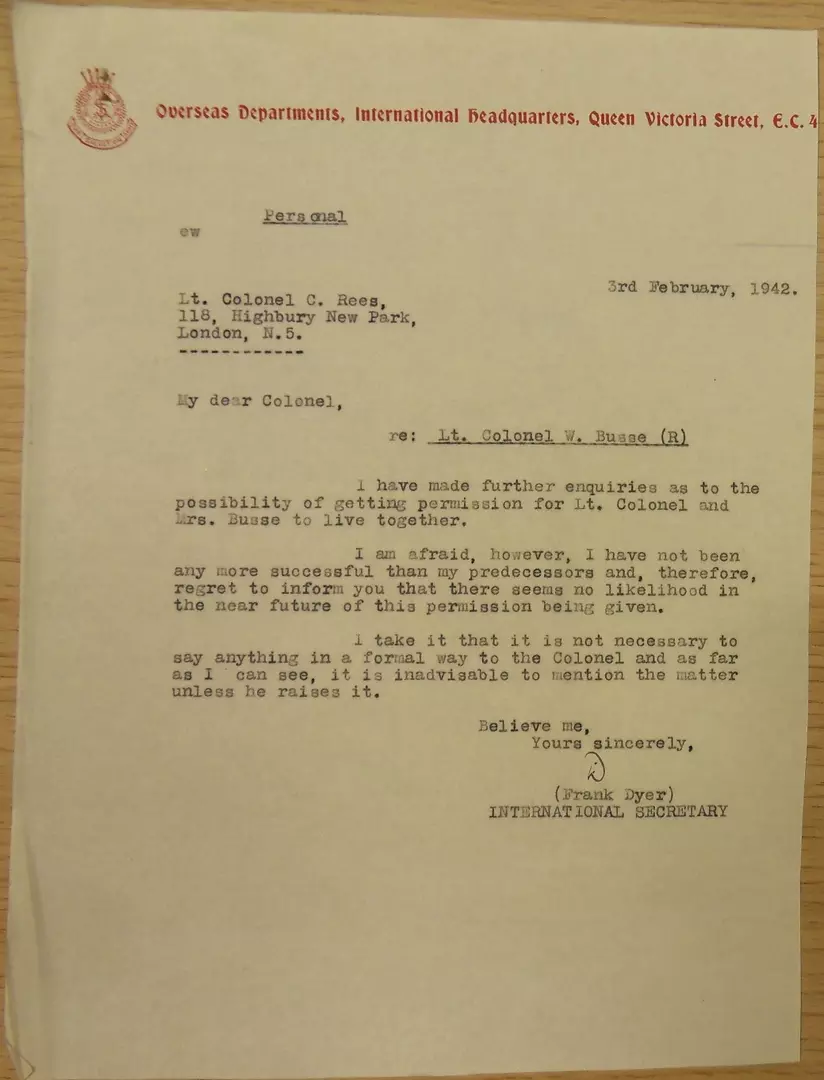
Whilst the family remained interned and separated, the Salvation Army was attempting to reunite them. Correspondence from early 1942 between the International Secretary, Commissioner Frank Dyer, and Lt. Colonel C. Rees, who was managing the couples’ finances, reveals the futile efforts of the Salvation Army to gain permission for Walter and Esther to live together in the same camp. However a letter received by Commissioner Dyers on 13 February 1942 from Lt. Colonel Rees reveals that, after 18 months, Walter had been removed to the Married Men’s Camp [Camp Y].
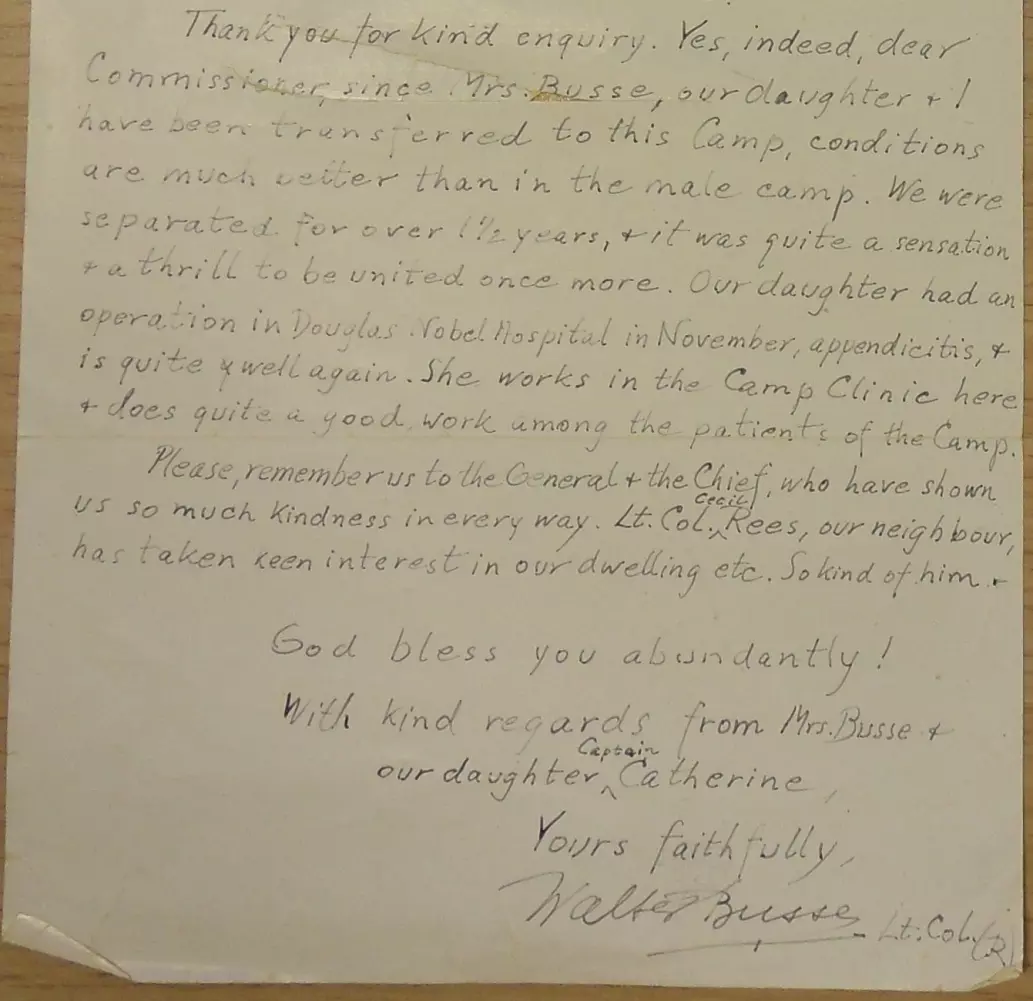
The earliest letter from Walter in this collection is dated 10 May 1942 and confirms that he, his wife and daughter are together in Y camp. He also shares news of their lives in interment. Despite the reunion of the family, they continued on in their internment. Letters were regularly exchanged between IHQ and Walter Busse as well as letters between IHQ discussing the situation and the difficulties. Walter’s letters reveal a fascinating insight in the lives of internees - one letter refers to the ‘Camp Library’. Another letter, dated 16 May 1943, shares news of the death of a brother of another interned Salvationist, Adjutant Margarete Schroder – news that had, interestedly, reached those interned in the camp but not the International Headquarters.
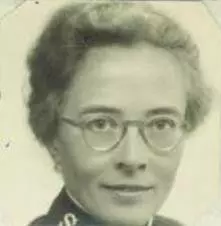
Walter’s letter dated 1 August 1943 reveals their daughter is to be released and allowed to return to her work in Glasgow. He mentions Catherine is a qualified midwife and her work in the camp has ‘helped her very much in regard to nursing + medical care for babies…’ Catherine had spent three years interned upon her release. Brigadier Ida Russell, the International Under Secretary, welcomes the good news and ends her letter hoping to hear again soon from Walter ‘even if there is nothing special to write about it will be nice to hear how you are’. The letters continue, with one dated 2 January 1944 describing Christmas in the camp. Walter writes on 15 October 1944 that Adjutant Margaret Schroder was ‘repatriated on August 31st’. Six months later, Walter and Esther were released on 11 April 1945, having spent almost five years interned on the Isle of Man.
The correspondence continues on into 1947, with Walter and Esther easing back into their lives in London. A letter dated 25 October 1946 reveals one of their two sons, Gerhard ‘is still a P.O.W in Egypt’. The couple lived out the rest of their retirement in Ilford. Esther was promoted to Glory 1968, whilst Walter was promoted to Glory at the age of 101 in 1979.
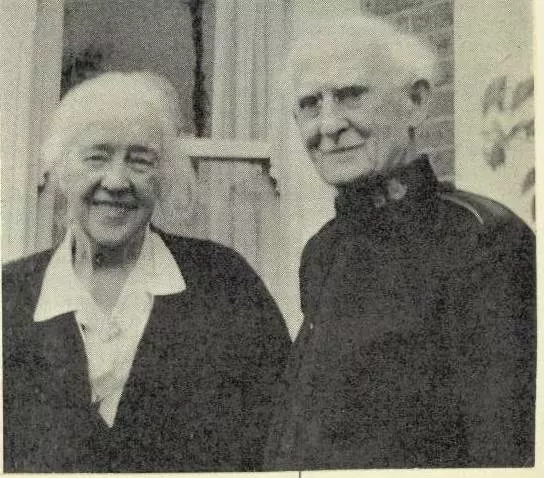
The correspondence explored in this blog post is available to view in our reading room [reference EUZ/6/1/4]
Tara
January 2017
Read other blogs from the Heritage Centre

Riches indeed!
Our new Research Assistant, Major Mel Jones, gives his first impressions of working at the Heritage Centre...
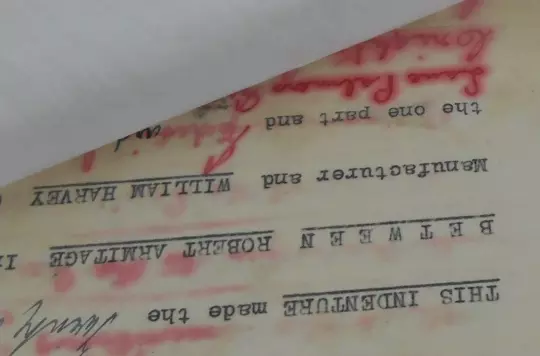
Conserving the Leeds Guardian Home papers
In 2013, I opened a box of records that had come to us after many years spent in various unsuitable storage locations...
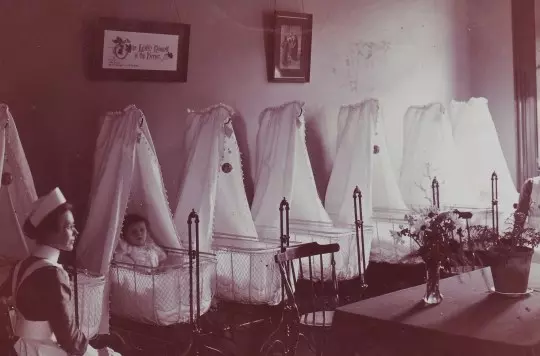
First World War Babies
Between 1897 and 1972, women seeking admission to Salvation Army homes in the United Kingdom were interviewed at The Salvation Army’s Women’s Social Work (WSW) headquarters in London...
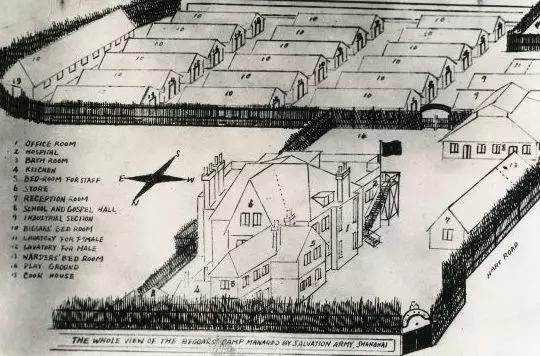
'Receive, reform, regenerate, restore': Beggars' Town, Shanghai
One of our files from China comprises photographs of a settlement in Shanghai known as Beggars' Town ...